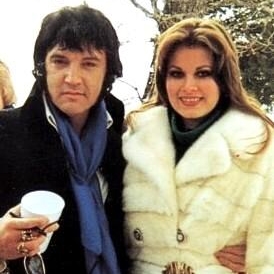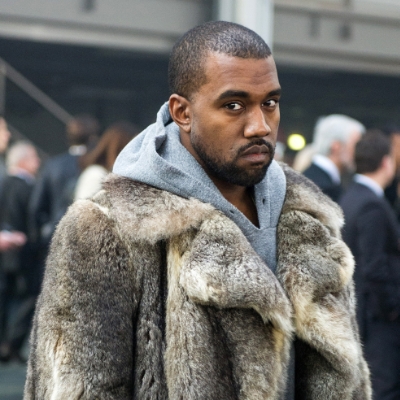Hidden Meanings Behind the "Rocketman" Movie (Spoilers)
Reviewed by Joy Ramos Davis
Synopsis: "Rocketman" is a musical biopic about the rise, crash and full recovery of rock legend, Elton John. Raised in northwest London as Reginald Dwight, he grew up in a broken family, raised by aloof parents who showed little interest in him and his natural talent of playing the piano by ear. Elton paired up with lyricist Bernie Taupin to successfully co-create top-charting hits since the 1970s. Lavished with fame and fortune, Elton's multiple addictions became out of control, stoked by his controlling manager and gay lover, John Reid, that contributed to his descent into attempted suicide. He sought help at a rehab center that became his saving grace.
Warning: Spoilers within the Presentation
Facing His Demons
Welcome to "Conscious Movie Reviews." I'm your host Joy Davis and here to review the musical biopic, "Rocketman".
Skipping out on a concert performance, Elton John barged in on a rehab meeting, dressed as the devil in orange. He needed help, admitting that he's addicted to sex, drugs, and alcohol as a bulimic shopaholic with anger issues.
Wearing flamboyant costumes symbolized Elton's "mask of shame" that hid a more sensitive nature. By dressing as the devil, it was an outward show of confronting his inner demons that are the hard emotions he had demonized. This time, Elton felt ready to bare himself in an emotionally transparent and vulnerable way for true healing.
Growing Up Reginald
Asked what he was like as a child, Elton channeled his anger.
Born in northwest London as Reginald Kenneth Dwight, he lived with a hyper-critical and emotionally cold mum named Sheila. Reggie's absentee father, Stanley, would only be around occasionally. It was the nasty fights between his parents and their disinterest in his musical ability to play the piano by ear that pained him. Sheila's affair with another man was the breaking point for Stanley to walk out on them.
Raised around chaos, he felt ongoing shame - a pillar of loneliness. Self-help author and spiritual teacher Teal Swan explains that "when you feel shame, you feel like something about you is so bad and so wrong that it's inconceivable that someone or something could be attached to and connected to you. But because you don't believe you are worthy of connection, it always feels like abandonment is right around the corner."
Singing "I Want Love" provided the musical backdrop for how he felt that kept him addicted to love for many years. Your emotional age as an adult can be the same age as when you experienced trauma growing up and stay stuck there. At times, Elton acted out of neediness in a childish way because he saw himself as a small, vulnerable child.
Friend as Soul Mate
Following up on a tip by a Black American singer on what he must do to be famous, Reginald took on the stage name of Elton John, then signed with DJM Records for a three album-a-year deal.
Music executive Ray Williams paired him up with songwriter Bernie Taupin to create a perfect match. Bernie was tone deaf and Elton wasn't good at writing lyrics. As friends, they were often in sync with each other. This is the hallmark trait of Soul Companions, a non-sexual type of Soul Mate relationship. Mateo Sol of "Loner Wolf" describes this dynamic as being with someone who is in ego harmony with you that can last a lifetime without friction. Elton admitted in interviews that he never had an argument with Bernie. They've collaborated as friends for over fifty years.
Freedom to Fly Away
Just before Elton was about to perform at the famous Troubadour in Los Angeles, he complained of stage fright from knowing that musical legends are in the audience. He wowed them with "Crocodile Rock" to magically float with his feet up while playing the piano.
This scene shows that whenever Elton is caught up in a song, he's in soul flight to wander free. Serving as the purveyor of Elton's thoughts and feelings, Bernie wove this sensation into the lyrics of "Rocketman," "Skyline Pigeon," "Philadelphia Freedom" and "Don't Let the Sun Go Down on Me."
When you're raised by parents who are emotionally unavailable, its hard to feel securely attached - secure in your sense of self and trust that others would respond to you in a safe and nurturing way. He preferred to float out in space instead of landing down to harsh reality.
Emotional Memories in Music Videos
The montage of music videos within the film represented Elton John's album of emotional memories. This is more about his personal truth through feeling and perception, but not based entirely on fact because the scenes show how music allows for the objective and subjective to become one.
Just like the audience at the Troubadour, they were uplifted by the music - riding the waves of Sound. As you wander free as Soul, music is the means and portal - a Soul Travel experience of being transported through a very subtle expansion of consciousness to a region of the Astral plane that's the source of creativity by many music artists. It's a vast, inner world of emotions where you can easily manifest through imagination with feeling.
Needy for Love
At a party, music producer John Reid wooed Elton with fancy talk of becoming a bestselling artist in America by romantically saying, "We can see you shooting light, color and magic into the night sky." Their mutual attraction was immediate. You can hear "Take Me to the Pile" playing as they consummated their musical and sexual interest in each other.
Elton ditched Ray of DJM Records to partner with John. He was advised to come out as gay with his parents so they can help to hide their sexual relationship from the press. It hurt him to see Stanley being happy with two sons that he obviously preferred. Sheila responded in her usual, aloof way. She carelessly told him that he chose a life of being alone forever; he'd never be loved properly.
Sheila's harsh rebuke left Elton more desperate for love, seeking it outside of himself by working hard at earning it from the public.
Elton John is a "Rocketman"
It was a wild ride to fame and massive fortune with lots of debauchery that contributed to Elton's "crash". Hurt by John's abuses and sexual betrayal, he lapsed further into his addictions to self-medicate and took rock glam to the hilt as a needy show for attention.
In an attempt to commit suicide, he took lots of pills with vodka and jumped off the pool plank in front of guests. His boyhood self showed up in the water below to play "Rocketman" on a little piano, wearing an astronaut suit.
Elton John's attempt at suicide was more like a plea for help. What he really wanted to kill was his selfish ego that's caught up in the pain of separation and addiction because as Soul, we are already whole. It's so easy to forget this when life's challenges can leave us fragmented inside.
Falling into the pool can relate to how Elton must submerge himself to the feelings world of the subconscious where his repressed feelings and wounded, inner child reside.
The lyrics to "Rocketman" revealed how Elton's life has been pulled in two directions, like parallel realities. There's the one reality that's full of emotional torture, but in the other life, reality is mundane. When the mundane life starts to feel like a total lie - a cover for the real reality that's painful, getting trapped in this can be lonely, so thoughts of suicide creep in. This is according to Teal Swan, author of "The Anatomy of Loneliness." For Elton to feel whole again, he must consciously mend the incongruencies between his inner and outer self so that they match for his authentic self to thrive. A return to our True Selves is the wholeness that we seek.
Elton John's life is a lesson in extremes. He is a "Rocketman" by choice to learn best from the very highs and rock bottom lows before grounding himself in the middle to be at peace and know what's really meaningful in life within the mundane.
Recovery and a Happing Ending
Back on stage, Elton performed in a baseball player outfit at Dodger Stadium. What he wore symbolized an emerging, aggressive attitude with a baseball bat in hand to represent his motivating and driving forces that's needed to confront the difficulties ahead and achieve goals by hitting the ball out of the park.
By the 1980s, Elton ended his sham marriage to Renate Blauel and fired John for skimming money from record sales. By walking out on Sheila after admitting how disappointed she had felt being his mother, it was another turning point - the necessary task of systematically letting go of toxic relations.
Elton had had enough. The moment his nose bled backstage from snorting coke, he headed straight for the group therapy session in the devil outfit. When images of his mother, father and boyhood self showed up to represent his inner parents and child, he was ready to reconcile these wounded parts of himself to feel whole again.
Through the song, "I'm Still Standing," Elton celebrated his recovery. Since 1991, he has remained sober; raised millions of dollars for his AIDS Foundation; and is happily married to David Furnish.
Subscribe to Beyond 50's Radio Updates!
Beyond 50 values your personal information. Your email will
not be used, sold, or
shared with any outside party.
Related Interviews:

The Law of Forgiveness

Elvis and Ginger

The Seven Habits of Highly Dramatic People
Watch It Now!




